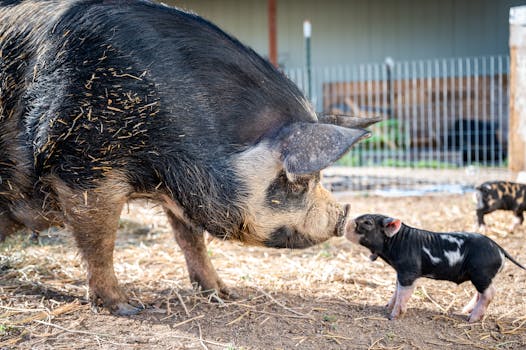
**
Farm and Animal Husbandry Ministries Unite: Urgent Call to Halt US Duty Reliefs – Protecting Domestic Agriculture
The domestic agricultural sector is bracing for a potential crisis as the Farm and Animal Husbandry Ministries issue a joint statement vehemently opposing proposed duty reliefs on agricultural imports from the United States. This move, they argue, poses a significant threat to local farmers, livestock producers, and the overall food security of the nation. The ministries' urgent plea highlights concerns about unfair competition, market saturation, and the devastating impact on livelihoods. The statement comes amidst growing anxieties about global food prices and the increasing vulnerability of domestic agriculture to external pressures.
The Ministries' Concerns: A Deep Dive into the Duty Relief Debate
The ministries' opposition is rooted in several key concerns, which are detailed in their comprehensive statement. These concerns resonate with anxieties felt throughout the agricultural sector, sparking widespread debate and prompting calls for government intervention. The key issues at stake include:
Unfair Competition: The ministries argue that granting duty reliefs to US agricultural imports would create an uneven playing field. Domestic producers, often burdened by higher production costs and stringent regulations, would struggle to compete against subsidized US imports, potentially leading to widespread farm closures and job losses. This unequal competition threatens the very fabric of the national agricultural landscape, potentially leading to a decline in agricultural output and self-sufficiency.
Market Saturation and Price Depression: An influx of cheaper US imports could saturate the domestic market, driving down prices for domestically produced goods. This price depression would severely impact the profitability of local farmers and livestock producers, making it difficult for them to maintain operations and invest in improvements. The consequence could be a reduction in quality and quantity of domestically produced food. This is particularly concerning given the recent rise in global food inflation and the need to ensure food security for the nation.
Threat to Food Security: The ministries' statement directly addresses the potential threat to national food security. Reduced domestic production due to unfair competition and depressed prices could lead to increased reliance on imports, making the nation vulnerable to global supply chain disruptions and price volatility. This dependence on foreign markets poses significant risks to food availability and affordability for consumers.
Impact on Smallholder Farmers: The proposed duty reliefs are particularly concerning for smallholder farmers, who represent a significant portion of the agricultural workforce. These farmers, often lacking the resources and scale to compete with large-scale US producers, would be disproportionately affected by increased competition, potentially leading to widespread displacement and rural poverty. Supporting smallholder farmers is crucial for maintaining rural livelihoods and preserving traditional farming practices.
Violation of Fair Trade Principles: The ministries argue that the proposed duty reliefs violate the principles of fair trade. They believe that such measures should not be adopted without due consideration for the potential impact on domestic producers and the wider economy. They call for a transparent and equitable approach to trade that safeguards national interests.
Calls for Transparency and Equitable Trade Policies
The ministries are demanding greater transparency in the decision-making process surrounding the proposed duty reliefs. They are urging the government to conduct a thorough impact assessment, considering all stakeholders and the potential consequences for the domestic agricultural sector. This assessment should include a detailed analysis of the potential economic, social, and environmental impacts of the proposed policy.
The ministries' statement is not simply a rejection of the duty reliefs but also a call for a fundamental reassessment of trade policies relating to the agricultural sector. They advocate for policies that promote fair competition, protect domestic producers, and safeguard national food security. This includes exploring measures such as:
- Strengthening support for domestic farmers: This may involve providing subsidies, access to credit, and improved agricultural technologies.
- Promoting value-added agriculture: Encouraging the processing and marketing of agricultural products can enhance profitability and reduce reliance on raw material exports.
- Negotiating fair trade agreements: Working with international partners to ensure equitable trade practices that protect domestic industries.
Public Reaction and Future Implications
The ministries' statement has been met with widespread support from farmers' organizations, industry associations, and consumer groups across the country. Many view the duty reliefs as a threat to their livelihoods and the country's food security. The public outcry emphasizes the importance of protecting the domestic agricultural sector and promoting sustainable food systems.
The coming weeks will be crucial. The government's response to the ministries' urgent plea will be closely watched. The decision regarding the US duty reliefs will have far-reaching consequences, shaping the future of the agricultural sector and the overall economic landscape for years to come. The outcome of this debate will not only affect the agricultural industry but also have significant implications for rural communities, food prices, and national food security. This is a critical juncture, and the government's actions will be pivotal in determining the fate of the nation's agricultural future. The situation underscores the urgent need for balanced and sustainable trade policies that prioritize the wellbeing of domestic producers and the food security of the nation. The keywords surrounding this issue – Agricultural subsidies, food security, US trade policy, fair trade, import tariffs, market competition, smallholder farmers, and rural development – are all highly relevant to this debate and highlight the complexity of the issue at hand.




















